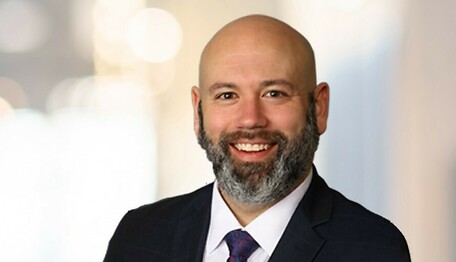The Supreme Court Clarifies the Adverse Action Standard under Title VII in Muldrow v. City of St. Louis, et al.
On April 17, 2024, the Supreme Court of the United States issued its much-anticipated decision in Muldrow v. City of St. Louis, Missouri, et al. Reversing the Court of Appeals for the Eighth Circuit, the unanimous Court held that an employee challenging a job transfer under Title VII of the Civil Rights of 1964 (Title VII) must show that the transfer brought about some harm with respect to an identifiable term or condition of employment, but that harm need not be significant.
Background
From 2008 through 2017, Sergeant Jatonya Clayborn Muldrow (“Muldrow”) worked as a plainclothes officer in the St. Louis Police Department’s (“Department”) specialized Intelligence Division. During her tenure there, Muldrow investigated public corruption and human trafficking cases, oversaw the Gang Unit, and served as head of the Gun Crimes Unit. Muldrow was also deputized as a Task Force Officer with the Federal Bureau of Investigation, a status granting her, among other things, an unmarked take-home vehicle, and the authority to pursue investigations outside of St. Louis. In her position, Muldrow received positive performance feedback.
In 2017, Muldrow’s new supervisor requested the Department transfer Muldrow out of the Intelligence Division. The Department approved the transfer against Muldrow’s wishes and she was reassigned to a uniformed job in the Department’s Fifth District. Muldrow’s rank and pay did not change, but her responsibilities, perks, and schedule did. Instead of working with high-ranking officials on departmental priorities lodged in the Intelligence Division, Muldrow now supervised the day-to-day activities of neighborhood patrol officers. In the new position, Muldrow lost the unmarked take-home vehicle, the ability to pursue matters outside of St. Louis, and her weekends off.
Muldrow brought this Title VII suit to challenge the transfer. Muldrow alleged that the City, in “ousting her from the Intelligence Division, had ‘discriminate[d] against’ her based on ‘sex with respect to’ the ‘terms [or] conditions’ of her employment.’” The District Court entered summary judgment in favor of the City, dismissing Muldrow’s case. Under Circuit precedent, the District Court explained that Muldrow failed to demonstrate that her transfer effected a “significant” change in working conditions producing “material employment disadvantage.” In sum, Muldrow failed to meet the “heightened-injury standard.” Muldrow appealed.
The Court of Appeals for the Eighth Circuit affirmed. It agreed that “Muldrow had to—but could not—show that the transfer caused a ‘materially significant disadvantage.’” Overall, the Eighth Circuit determined that Muldrow’s claim could not proceed because she had had experienced “only minor changes in working conditions.”
The Supreme Court granted certiorari to resolve a Circuit split over whether an employee challenging a transfer under Title VII must meet a heightened threshold of harm. In vacating the Eighth Circuit’s judgment, the Court held that Title VII imposes no such requirement.
The Court’s Decision
Writing for the Court, Justice Kagan began the opinion by restating the plain language of Title VII: it is unlawful for an employer to “fail or refuse to hire or to discharge any individual, or otherwise to discriminate against any individual with respect to [their] compensation, terms, conditions, or privileges of employment, because of such individual’s … sex.” Here, neither party disputed that Muldrow’s transfer implicated “terms” and “conditions” of Muldrow’s employment. However, under Title VII, Muldrow is required to demonstrate that, based on her sex, the transfer brought about some “disadvantageous” change in an employment term or condition. The Court noted that the terms or conditions phrase is not interpreted in the narrow sense—it covers more than economic or tangible harm.
The Court rejected the City’s position that Muldrow was required to show that the harm incurred, the transfer to the new position, was “significant” or otherwise exceeded some heightened bar. “Discriminate against” simply means to treat worse, here based on Muldrow’s sex. To demand “significance” or to apply some other heightened standard adds words to the statute Congress enacted. In other words, it imposes new requirements on a Title VII claimant so that the law applied demands something more than the law as written.
Determining that Muldrow needed to show only some injury respecting her employment terms or conditions, a test that Muldrow satisfied “with room to spare,” the Court vacated the below decisions as the wrong standard was applied.
Muldrow and the Impact on Diversity, Equity, and Inclusion (DEI)
In Students for Fair Admissions, Inc. v. President and Fellows of Harvard College the Court struck down affirmative action programs at Harvard College and the University of North Carolina because they considered an applicant’s race as a factor of admission.[1] In Justice Gorsuch’s concurrence, Justice Gorsuch acknowledged the similarities between Title VI of the Civil Rights Act of 1964 and Title VII—both prohibit discrimination based on race, color, sex and national origin. Consequently, this sparked many discussions on the impacts SFFA would have on private employers and their DEI programs and initiatives.
During the December 2023 argument in Muldrow before the Court, Justices Thomas and Coney Barrett suggested that a Title VII standard without a “significant” or otherwise heightened bar could implicate workplace DEI initiatives. Although the Court in Muldrow noted that there is “reason to doubt that the floodgates will be open as feared,” it is plausible that this broader understanding of adverse action could open the door to more colorable discrimination challenges and specifically, those seeking to challenge employers’ DEI programs.
In light of the Muldrow decision, employers should review their DEI programs and initiatives to ensure that they are appropriately implemented and narrowly tailored and consistent with state and federal law.
Members of the Labor and Employment Group at White and Williams LLP are available to assist employers with guidance under the new Supreme Court decision. If you have questions, please contact R. Victoria Fuller (fullerv@whiteandwilliams.com; 617.748.5223), Tanya A. Salgado (salgadot@whiteandwilliams.com; 215.864.6368), Ryan T. Warden (wardenr@whiteandwilliams.com; 215.864.6360), Joseph M. Carr (carrj@whiteandwilliams.com; 610.782.4907), or another member of the Labor and Employment Group.
For more developments on labor and employment, head to The Employment Law Counselor blog and listen to the latest Employment Law Counselor podcast on related topics.
[1] Together with Students for Fair Admissions, Inc. v. University of North Carolina, et al.
PRACTICE AREAS
KEY ATTORNEYS
-
Associate
-
Partner
-
Partner
-
Partner




